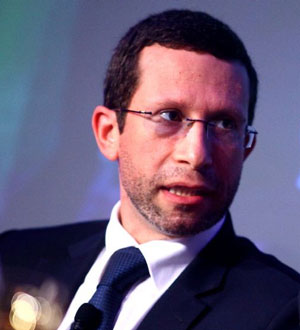Marc Djandji, co-founder and partner of Asean Strategy Group, an independent investment bank, discusses Asean’s banking and finance landscape
Is Asean ready to open up its finance sector?
There are still many hurdles before we get a liberalised Asean-wide banking industry. Given that Asean states are very diverse in their levels of economic and financial development, priority should be given to each country’s autonomy. If integration is pursued at all costs, cross-border banking integration may lead to domestic banking markets in smaller countries being dominated by foreign banks. Such a trend would benefit firms from Singapore, Malaysia and Thailand. Therefore, protectionism in smaller countries may slow things down.
Which banking and finance trends do you expect?
Total cross-border investments and M&A will no doubt be on a rising trend as companies build their regional footprints. Other trends will include the consolidation of banks, the emergence of Islamic banking, and banking technology development and integration.

Will Indonesia gain importance in Islamic finance?
Indonesia would certainly benefit from having the largest Muslim population in Southeast Asia. That being said, that would not necessarily assure pole position. In Malaysia, 75% of its Islamic finance products are taken up by non-Muslims.
For the moment, Indonesia only represents 3% of the world’s Islamic banking assets, compared to 22% for Malaysia. But Indonesia’s market has been growing at a five-year compound annual growth rate of 42%. To be competitive, Indonesia will need to enhance its regulatory and legal considerations.
To what extent will capital markets play a bigger role for private firms’ investments in the region?
The region is rather fragmented in terms of access to funding through capital markets. For the time being I’d say that capital markets and investment banking in Asean really means Singapore.
Malaysia is quickly becoming a global hub for innovation in Islamic finance. It should provide access to corporates seeking capital through shariah-compliant offerings. Vietnam and Indonesia are runners-up with large numbers of state-owned enterprises set to privatise.
Finally, Laos, Cambodia, Brunei and Myanmar are well behind these developments as their capital markets are either too small or non-existent.
What potential do you see for the planned Yangon Stock Exchange?
I think this is great for the country and for investors. For the time being, investors could only access Myanmar-related companies mainly on the SGX and SET. I believe that with all the interest for that country, the stock market should probably go the route of Vietnam rather than Cambodia. If what happened in Vietnam is any indication, we should see strong inflows of foreign institutional investors. But we could also expect lots of volatility as in any other frontier market.


